Patrick Fairbairn Collection (9 vols.)
Digital Logos Edition
Overview
This collection of writings by Patrick Fairbairn and his associates resonates with the sound judgment, high ideals, and evangelical spirit that characterize Fairbairn’s work. Included are both volumes from his seminal Typology of Scripture, which became the standard text of its time on typology, as well as other writings expounding upon revelation, law, prophecy, and more. Several series of lectures are also present, which provide a fascinating insight into the theological thought, turmoil, and debates of the day.
With Logos Bible Software, these valuable volumes are enhanced by cutting-edge research tools. Important terms link to dictionaries, encyclopedias, and a wealth of other resources in your digital library. Powerful topical searches help you find exactly what you’re looking for. Tablet and mobile apps let you take the discussion with you. With Logos Bible Software, the most efficient and comprehensive research tools are in one place, so you get the most out of your study.

- The accepted authoritative work on typology for the time, as well as other volumes enhanced by Fairbairn’s expertise
- A biographical sketch on Patrick Fairbairn, written by Rev. James Dodds
- Lectures from several great theologians of the Church of Scotland
- Title: Patrick Fairbairn Collection
- Volumes: 9
- Pages: 4,112
- The Typology of Scripture: Viewed in Connection with the Entire Scheme of the Divine Dispensations, vol. 1, by Patrick Fairbairn
- The Typology of Scripture: Viewed in Connection with the Entire Scheme of the Divine Dispensations, vol. 2, by Patrick Fairbairn
- Pastoral Theology: A Treatise on the Office and Duties of the Christian Pastor, by Patrick Fairbairn
- The Revelation of Law in Scripture, Considered with Respect Both to Its Own Nature, and to Its Relative Place in Successive Dispensations, by Patrick Fairbairn
- Prophecy Viewed in Respect to Its Distinctive Nature, Special Function, and Proper Interpretation by Patrick Fairbairn
- Divine Revelation Explained and Vindicated: A Course of Lectures for the Times, by Patrick Fairbairn, Robert Buchanan, Henry Calderwood, William Symington, Alexander R. MacEwen, and Marcus Dods
- Hermeneutical Manual or, Introduction to the Exegetical Study of the Scriptures of the New Testament, by Patrick Fairbairn
- A Course of Lectures on the Jews, by Ministers of the Church of Scotland
- Lectures on the Revival of Religion, by Ministers of the Church of Scotland
This title is included in the following collections
You can save when you purchase this product as part of a collection.
2025 Reformed Diamond
$2,999.99$2,249.99Logos 8 Reformed Diamond Legac...
$2,999.99$2,999.992025 Reformed Portfolio
$4,749.99$3,562.49Logos 8 Reformed Portfolio Leg...
$4,749.99$4,749.99
- $4,749.99
- $23,999.99$17,999.99
- $21,749.99
- $24,999.99
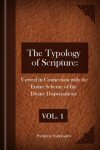
Fairbairn’s Typology of Scripture was the standard text on typology in its day, forging connections not only with the Bible, but with all Christian doctrine. This first volume of The Typology of Scripture: Viewed in Connection with the Entire Scheme of the Divine Dispensations begins with an inquiry into the principles of typical interpretation, to determine the real nature and design of types, and the extent to which they entered into God’s earlier dispensations; it then covers the dispensation of primeval and patriarchal times. Supplemental text is included in five appendixes.
By far the soberest, most systematic and most satisfactory work of the kind.
—The Church English Quarterly Review
No biblical student should be without Professor Fairbairn’s Typology.
—Dr. S. Lee, author of Events and Times of the Visions of Daniel
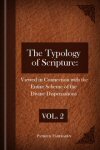
Typology of Scripture was widely considered to be essential for any Bible scholar. The second volume of The Typology of Scripture: Viewed in Connection with the Entire Scheme of the Divine Dispensations discusses the dispensation introduced by the law, redemption from Egypt, the instructions given to the Israelites for the construction of the tabernacle, Mosaic dispensation, and other historical developments. Four appendixes of supplemental text include an illustration of the alter of burnt offering.
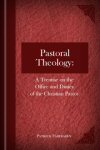
Published shortly after his death, Pastoral Theology is a companion work to Fairbairn’s earlier Pastoral Epistles, and expounds upon practical themes such as the pastoral duties and social life of the pastor, the pastoral calling, different kinds of discourses, dealings with special cases, the administration of discipline, and much more. This volume also includes a biographical sketch of the late Patrick Fairbairn by Rev. James Dodds.
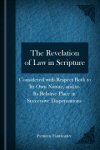
Somewhat politically charged in its day, this volume comprises a series of lectures that enter deeply into the subject of divine revelation and the law, with additional expositions on St. Paul’s writings in reference to the law.
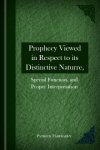
Patrick Fairbairn believed that the entire topic of prophecy was greatly affected by the spirit of the age in which he lived. He felt that the Bible’s claim to divine authority via biblical prophecy was being attacked both by external skeptics and by internal dissent among believers. Prophecy Viewed in Respect to Its Distinctive Nature, Special Function, and Proper Interpretation was his attempt to bring reason to this contentious area of theological debate by investigating the principles and typology of prophecy. This work was later reprinted and republished as The Interpretation of Prophecy.
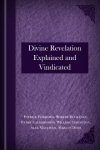
In the spring of 1866, a tumultuous time for the Presbyterian Church of Scotland, several prominent ministers and theologians of the day came together to deliver a series of lectures in Glasgow—defending portions of the faith such as divine revelation, confession, and the Sabbath, which were under attack from a “new theology.” These lectures, by Patrick Fairbairn, Robert Buchanan, Henry Calderwood, William Symington, Alexander R. MacEwen, and Marcus Dods, were meant to vindicate the established beliefs and confirm the foundations of faith for their fellow countrymen.
Patrick Fairbairn (1805–1874) was educated at the University of Edinburgh before becoming professor of Theology at Free Church Theological College. He later became professor of church history and exegesis at the Free Church College in Glasgow.
Robert Buchanan (1802–1875) was educated at the University of Glasgow before becoming minister of Garunnock. Buchanan went on to pastor several churches in Scotland, including the Tron Church in Glasgow and the church in Salton, Haddingtonshire.
Henry Calderwood (1830–1897) was a professor of moral philosophy at the University of Edinburgh, where he was educated. He was ordained through the United Presbyterian Church of Scotland and pastored at the Greyfriars church in Glasgow. His first and most famous work, The Philosophy of the Infinite, was a response to the emerging philosophy that man cannot possibly know the infinite divine; consequently, Calderwood’s thought was a complete antithesis to Hegelian doctrine. The Parables of Our Lord was among his best-known religious works.
William Symington was a professor of systematic theology in the Free Church, Glasgow. His works include Messiah the Prince, On the Atonement and Intercession of Jesus Christ, and The Character and Claims of the Scottish Martyrs.
Alexander R. MacEwen (1830–1897) was a moderator of the United Free Church of Scotland. He studied at several institutions throughout the UK and Europe and received degrees from both the University of Glasgow and Balliol College, Oxford. A minister and writer, MacEwen and was the author of The History of the Church of Scotland, vols. I and II and The Eastern Church in Greece.
Marcus Dods (1834–1909) was born in Belford, Northumberland. Dods went on to study divinity and theology at Edinburgh Academy and Edinburgh University, where he graduated in 1854. He was a highly respected scholar, who published over a dozen books of theology, including The Parables of Our Lord, recognized for their expansive critical research.
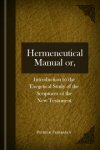
This volume contains a discussion of principles on the language and interpretation of New Testament Scripture, dissertations connected with the exegesis of New Testament Scripture, and a review of the use made of Old Testament Scripture in the writing of the New Testament.
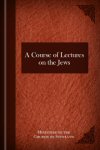
This series of 12 lectures was delivered after an Act of the General Assembly of the Church of Scotland in 1838, which convened with a view to the conversion of the Jews. Assembled by Ministers of the Church of Scotland and presented with the views of the day, these lectures deal with the history of the Jewish people, their present state (at the time), the character of God, Messianic doctrine, the work of the Holy Spirit, Christian duty, and more.
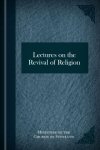
The goal of this lecture series was to educate on the true nature of revival. Avoiding the associations of fanaticism and frenzy, the lecturers point instead to the conversion of sinners, hoping to awaken “into more active and living energy those religious feelings, habits and principles which previously existed, but which had sunk into comparative dormancy,” in the faithful. These 14 lectures offer practical aspects of working for revival, errors and evils to guard against when conducting a revival, prayers for different occasions connected with revival, and more.
Patrick Fairbairn (1805–1874) was educated at the University of Edinburgh before becoming professor of Theology at Free Church Theological College. He later became professor of church history and exegesis at the Free Church College in Glasgow.
Reviews
3 ratings

Daniel Caballero
12/26/2020
Wilson Clark
4/5/2019

Debra W Bouey
7/29/2018